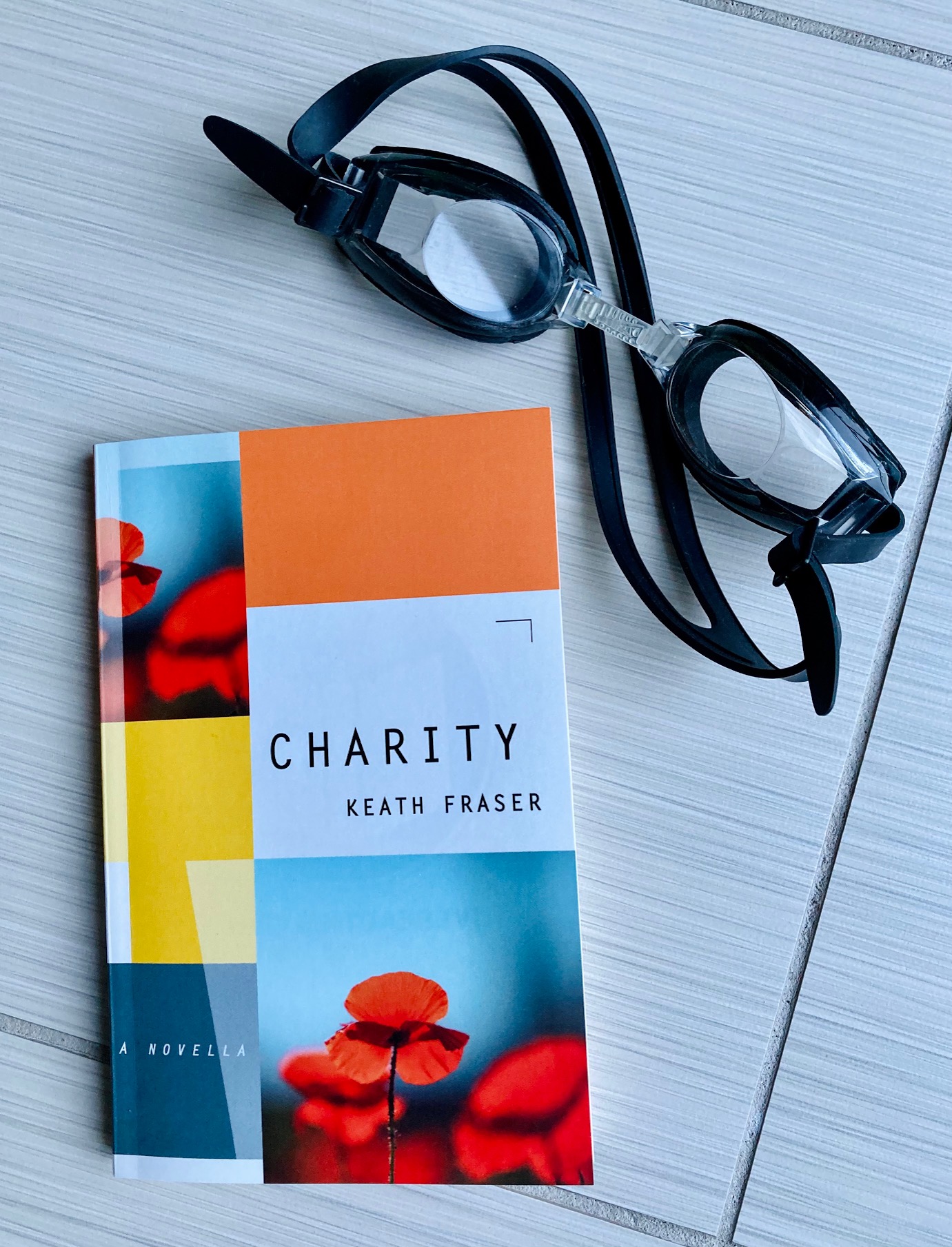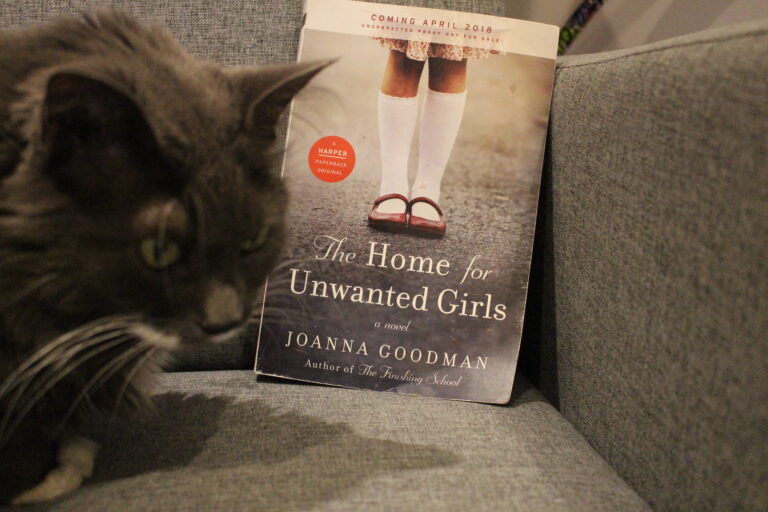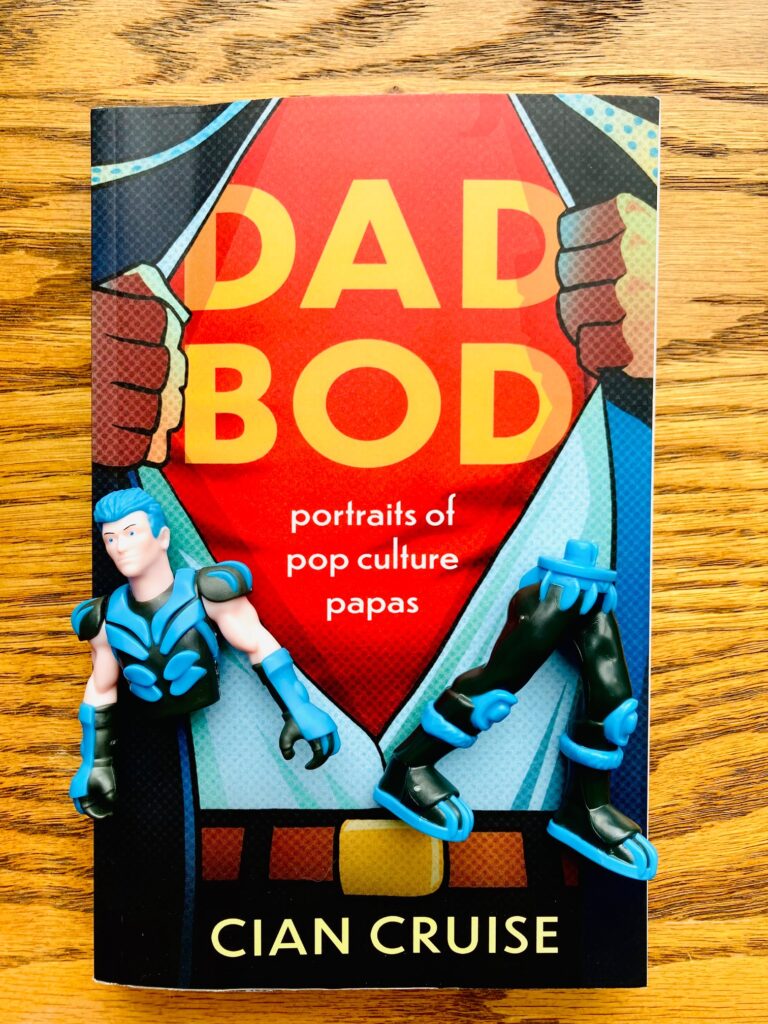Book Review: Charity by Keath Fraser

Even though Charity by Keath Fraser is only a novella (114 pages in length), it felt more like a novel, diving into a multitude of topics; drugs, body image, parental responsibility, ageism. Summaries of a few different people’s lives are included, but much of what elicits its emotion is what is left unsaid or never addressed at all. Like short stories, novellas are not as popular for consumers, but for those who like to savour a story, this length forces us to do just that when we know the end is so close. If I had the time I’d re-read Charity because I know without a doubt I’m missing some its nuances, alas my TBR is just too tempting at the moment.
Plot Summary
Denise’s stepdaughter Margaret (Greta) is a boisterous, independent young woman, sailing through medical school in British Columbia, and a long-distance swimmer with a contagious laugh. Greta is following in her father Patrick’s footsteps, as he has a successful family practice that he’s excited to pass down to his daughter once she gets her medical license. But both Patrick and Denise are confused when Greta falls in love with old family friend Rudy (and by old, I mean a man four times her age) and they take off to Africa together to do charity work. This is obviously a strange turn of events in their daughter’s life, and yet, what seems to take up the focus of the story is Greta’s weight. Before she leaves for Africa she is obese and doesn’t seem bothered by it. Instead, her parents, and her biological mother Judy who drops in every once in awhile are concerned, and they talk circuitously around it, but nothing is really done. Then Greta returns from Africa alone, having dropped enormous amounts of weight, unwilling to eat more than a few bites per day, and once again, her parents are all concerned, but for the entirely opposite reason than before. Unfortunately, we never get Greta’s perspective, we only see the world through Denise’s eyes.
My Thoughts
Just by reading my summary of this book you can probably tell where I became frustrated; why don’t we ever hear directly from Greta? It bothered me that we never know how she feels about her own body, what attracts her to Rudy, why she felt she needed to escape med school. Of course we can make a few guesses as to what’s happening, but those are never more than simple conjectures, and because her parents seem reluctant to speak directly with her too, we are all left in the dark, characters and readers alike, even though Margaret’s life is the only interesting thing worth speaking about in this book. I’m always curious why authors choose to hold out on us readers like this. Is it to build tension? It certainly drove me through the narrative faster because I was dying to hear from Margaret herself, but I suppose I’ve spoiled that for you by confirming we never get her direct perspective. Denise’s childhood is touched upon, part of her youth is also interrupted by an abrupt international trip, but none of what happens in her life is half as interesting as what’s happening with Greta.
The writing is what stands out in this book; it has a healthy dose of wry humour with lots of self-indulgent observations, which amused me enough to continue happily reading it even though I was indignant that Greta felt so far removed. The constant nattering about Margaret’s weight became a bit tiresome, and Patrick and Denise’s cruel jokes about Rudy and Greta together caused more than few eyerolls, but the descriptions of Denise’s seaside walks were gorgeous which helped make up for my other complaints. Although I enjoyed the overall experience of reading it, but I didn’t connect with any of the characters enough for it to leave a lasting impression.






That’s an interesting situation to be in, as a reader; it’s a lot like the situations in which we find ourselves in real life. Meaning that we are observers of everyone else’s life and when there’s a particular issue that baffles a family/community, we don’t usually ever come to an awareness of what that person was feeling and thinking. One writer might decide to write their way into that perspective, to imagine a resolution, but another might try to make sense of the not-knowing, to explore how we respond to people when we can’t access their thoughts and feelings, when we are simply onlookers.
That’s very true! We want to badly to know ‘what is that person thinking’ when they do something crazy around us, but we will never know, will we? Part of the zaniness of life I suppose…
But isn’t that usually the point of reading? To get inside other people’s heads? I think I would find it frustrating, too, not to ever hear from Greta, but I’m also somehow intrigued and want to read the book! Lol
Oh well perhaps publishers should be looking at my ‘not so positive reviews’ as still very positive then hahah
They should! :)